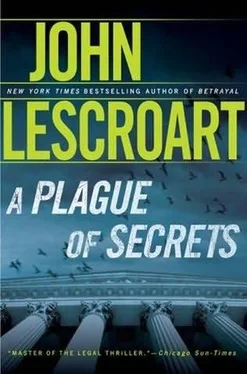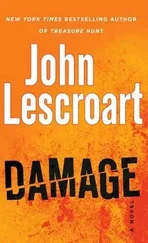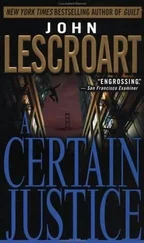“Do they have any suspects? I mean for who shot him.”
“No. It’s way too soon for that.”
“I hope Joel has an alibi. If he found out that Eugenio was dealing again after all we’ve been through, he would have killed him.”
“Let’s not mention that to anybody, okay? But it wasn’t Joel, even without an alibi. There were two different-caliber bullets, so it looks like two shooters. What it looks like, classically in fact, is a dope rip. Somebody followed somebody to where the money and the dope changed hands and just started blasting away.”
“That happens over marijuana?”
“Every day, Maya. Every day.”
“It seems so strange. Remember when we were younger?”
“I wasn’t young when you were, but I know what you mean.”
“It’s so hard to imagine. I mean, a little grass was like nothing, no big deal at all, and now these people are dying over it.”
“It’s illegal. So it’s prohibition all over again.”
“They ought to just legalize it.”
“That’s a different discussion which I’d love to have with you someday. But let’s not make the argument when you get on the stand. How’s that?”
The comment clearly offended her. “I’m not stupid, Diz.”
“Not even close, Maya.” He pushed his chair back a little from the table, crossed one leg over the other. “But you asked me what the killing of Ruiz meant for us. I’d like to pretend that Braun or maybe Stier will see this as the next step in a turf war that began with Dylan and Levon, and one that you couldn’t have been involved in, so they’ll just decide this whole prosecution and trial is a mistake and let you go. But unfortunately, that is not happening, not in a million years.”
“So. What’s left?”
“What’s left is a guy named Paco, who Eugenio maybe could have identified, and now definitely can’t.”
“Paco?”
“Ring a bell?”
“Well, actually, yes.”
Hardy sat back with a little thrill of surprise and pleasure. “Tell me you know him and where he lives and you could pick him out of a lineup.”
She bit her lip. “None of the above, I’m afraid. But I do know that name. He was a friend of Dylan’s. And Levon’s, too, for that matter.”
“All dead guys now, you notice. When did Paco know them? Back in college?”
She nodded. “Sometime back there. Evidently they were all kind of the in crowd before I became part of it. You know, Dylan and his pals always doing this crazy, dangerous stuff. And this kind of legendary guy named Paco.”
“So what happened to him? You never met him?”
“No. He was supposedly gone by the time I showed up.”
“Dropped out, transferred, what?”
“No idea, really. Maybe he wasn’t even in school with us, was just kind of a hanger-on. Except, you know, I’m pretty sure Paco wasn’t his real name. It was more like a nom de guerre. Sometimes I got the feeling it was somebody we all actually knew. I mean still knew, and still hung out with. It was just like Dylan to wrap it all up in a mystery and be the one keeping the big secret. Sound familiar?”
“You think Dylan might have been blackmailing him too?”
“I don’t know. I kind of doubt it.”
“Why?”
“Well, I think first, he didn’t need to. He had me. And second, if you don’t have a weak and guilt-ridden person like me you’re dealing with, blackmail can be a little dangerous. I mean, you’d better know your mark. You threaten to expose the wrong thing about the wrong guy, and the guy goes, ‘Uh, no. I think I’ll kill you instead.’ You know what I’m saying?”
“I do. And Paco wasn’t weak or guilt-ridden?”
“Evidently not. His toughness was why he was legendary. He was a real player. He used to go out with Dylan and Levon, like I did later, but was… well, he wasn’t just a tagalong. They supposedly hit this liquor store once and the clerk pulled a gun and Paco shot him dead.”
“This was a different robbery than the one Dylan and Levon went down for?”
“Yeah. Before I’d even met them. But when Dylan told me about it, I thought he was just bragging, making it sound like they were such romantic studs, sticking up places, these fearless kind of Robin Hood guys, getting money from these liquor stores and buying our dope with it, which they shared with everybody. How did I ever get involved with people like that? I just don’t know how that happened.”
“Maybe by doing robberies with them?”
“You make it sound way worse than it was. It wasn’t anything strong arm. It was more just intimidation to get stuff we wanted. Three or four of us putting the press on somebody, that’s all. It was mostly just other kids and their dope.”
“You just took it from them?”
She didn’t answer, looked down at the floor.
“At gunpoint?”
“No! Never with a gun. Dylan wouldn’t use a gun after Paco. Said you couldn’t predict what would happen and didn’t want another mistake.”
“Dylan thought it was a mistake, then? Using a gun.”
“Oh, yeah, definitely. He saw it as the reason Paco stopped hanging with them. And that really bummed him out. One less guy he had power over.”
“So Paco checked out because…?”
“Maybe he grew a conscience about the guy he shot. The way I heard it was Paco hadn’t planned to kill anybody. It was all kind of a lark that suddenly went bad.” She looked askance at Hardy. “That’s the way it happened with Dylan. You started messing around with him and doing crazier and crazier things until you did something awful that you didn’t mean to do at all. Just one moment of frailty falling in with these guys, and then somehow later you are in just completely the wrong place you never really meant to be. Me and what happened with Tess. Levon. Maybe this guy Paco, I don’t know.”
It appeared that Stier wasn’t going to let himself be sidetracked by the discovery of Lori Bradford or the murder of Eugenio Ruiz. He had three other witnesses tentatively scheduled to appear whose testimony, Hardy knew, closely adhered to that of Cheryl Biehl’s about Maya’s collusion with both Dylan and Levon in the marijuana business in college.
But since Stier had skipped from Biehl straight over to Jansey Ticknor, Hardy thought he was probably going to abandon any more discussion about Maya’s distant past. Everybody in the courtroom probably believed by now that his client had dealt drugs in college. What Stier had to get to next was her current involvement in Dylan’s operation, and to that end, as soon as Braun had taken the bench, he called Michael Jacob Schermer.
Schermer, in his mid-sixties, might have been an athlete in his earlier life, or even still a long-distance runner in this one. Tall, thin, white-haired, and very well dressed for the courtroom in a light green Italian suit, he projected a quiet confidence as he took the oath and went to the witness chair.
“Mr. Schermer,” Stier began, “what is your profession?”
“I’m an accountant.”
“And for how long have you been in accounting?”
Schermer, genial, sat back to enjoy the experience of testifying, which he’d clearly done many times before. He broke a small smile that he shared with the jury. “About forty years.”
“And have you developed a specialty over these years?”
“Yes, I have. It’s called forensic accounting.” Again, bringing in the jury. “It’s kind of like a superaudit, with a lot of computerized analysis and other bells and whistles, if you want to put it in lay terms.”
“And you are licensed in this field?”
“Yes. I am licensed and accredited as a CFE, or certified fraud examiner.”
“And what do you do in this line of work?”
“Well”-Schermer shrugged-“as the name implies, I’m basically trained to identify fraudulent business practices or financial transactions, embezzlements, misappropriation of assets, questionable bankruptcies, and so on.”
Читать дальше












